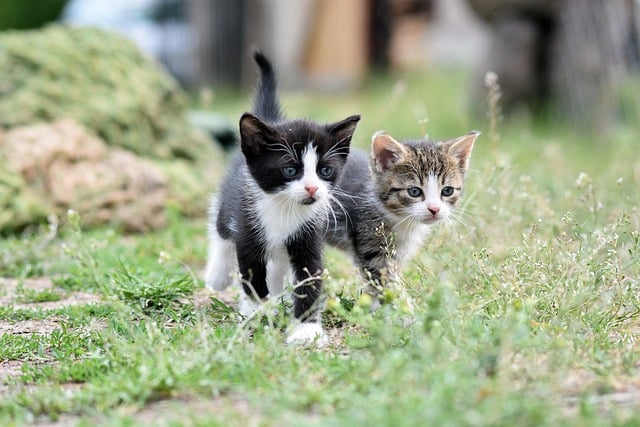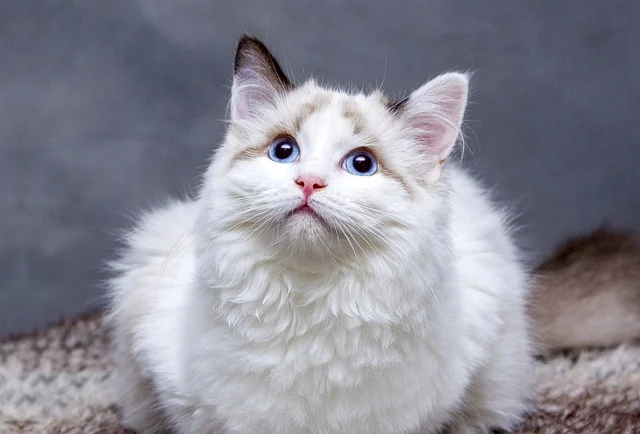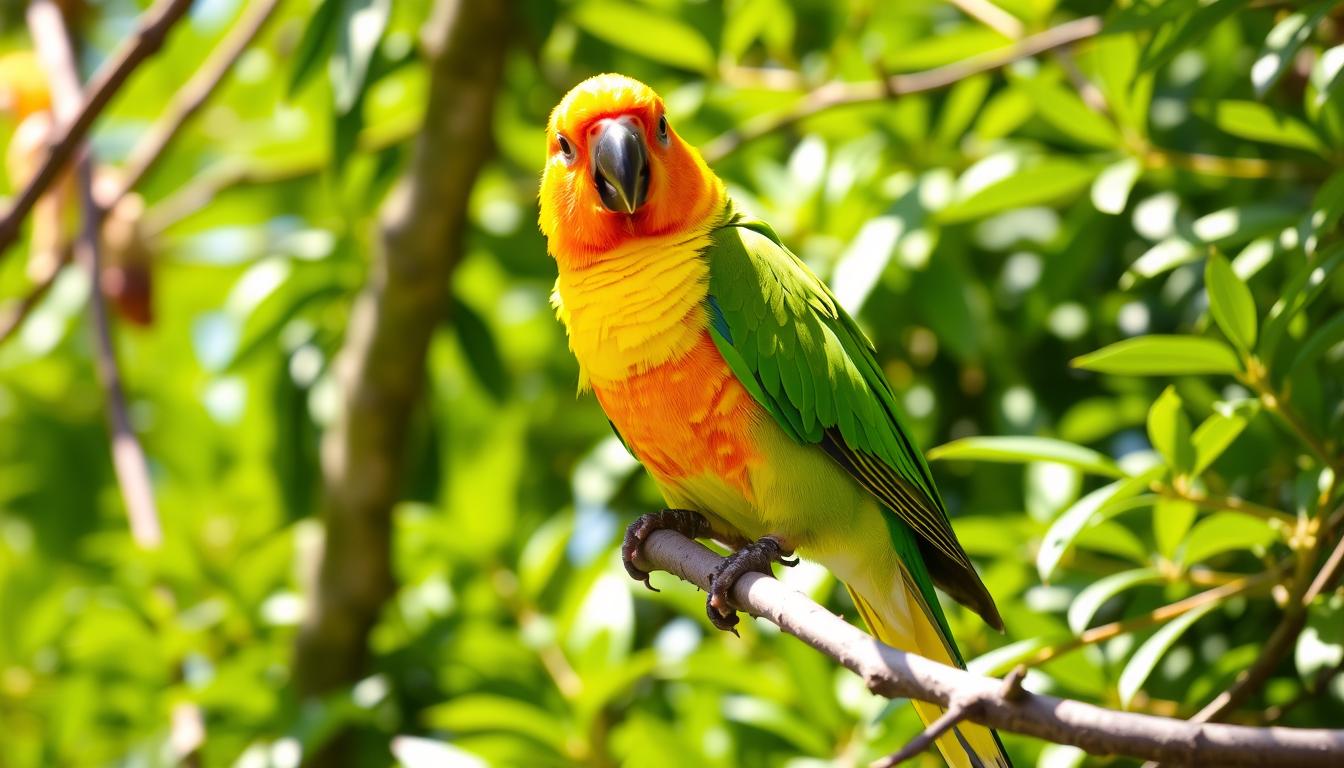The Adorable Bushbaby: Everything You Need to Know About Owning This Unique Pet

Introduction
Bushbabies, also known as galagos, are small, nocturnal primates that have captivated the hearts of exotic pet enthusiasts around the world. With their wide, inquisitive eyes and extraordinary agility, bushbabies offer a unique and rewarding pet ownership experience. But before you decide to bring one of these fascinating creatures into your home, it’s essential to understand what it takes to care for a bushbaby and whether this unique pet is the right fit for you.

H1: What Is a Bushbaby?
Bushbabies are small primates native to Africa, known for their distinctive appearance and remarkable jumping ability. These nocturnal creatures are primarily found in forests and savannas, where they live in trees and feed on a diet of fruits, insects, and small animals.
H2: Natural Habitat and Behavior
In the wild, bushbabies are highly agile and can leap significant distances from tree to tree. They are solitary animals, primarily active during the night, which is when they hunt and explore. Bushbabies communicate through vocalizations, scent markings, and physical gestures, making them highly expressive despite their small size.
H3: Physical Characteristics of a Bushbaby
Bushbabies are characterized by their large eyes, which are well-adapted for nocturnal vision. Their long tails help with balance, and their strong hind legs enable them to leap up to 10 feet in a single bound. Depending on the species, bushbabies can range from 5 to 12 inches in body length, with tails that are often longer than their bodies.
H3: Varieties of Bushbabies
There are several species of bushbabies, each with its own unique traits. Some of the more commonly known species include the Senegal bushbaby, the thick-tailed bushbaby, and the dwarf bushbaby. Each species varies in size, habitat preference, and behavior, but all share the characteristic big eyes and nocturnal habits.
H1: The Appeal of Owning a Bushbaby
Owning a bushbaby can be a unique and rewarding experience for those who appreciate the charm and mystery of these nocturnal animals. Bushbabies are known for their playful nature and can form strong bonds with their owners when properly cared for.
H2: Unique Traits That Make Bushbabies Adorable
Bushbabies are incredibly endearing due to their wide eyes and expressive faces. Their ability to leap great distances with ease and their curious, playful behavior make them fascinating to watch and interact with. Additionally, their nocturnal habits mean that they are most active in the evening and at night, making them a perfect companion for night owls.
H3: Social Interaction and Bonding with Humans
While bushbabies are naturally solitary, they can become very attached to their human caregivers. Building a bond with a bushbaby requires patience and consistent interaction. Over time, bushbabies can learn to trust and enjoy the company of their owners, often seeking out attention and playtime.
H1: Legal Considerations for Owning a Bushbaby
Before deciding to bring a bushbaby into your home, it’s crucial to understand the legal implications of owning this exotic pet. Regulations surrounding the ownership of bushbabies can vary significantly depending on your location.
H2: Is It Legal to Own a Bushbaby in Your Area?
In some regions, owning a bushbaby is perfectly legal, while in others, it may be restricted or entirely prohibited. It’s essential to check with local wildlife authorities or a legal professional to determine if you can legally own a bushbaby where you live.
H3: Understanding Exotic Pet Regulations
Exotic pets like bushbabies are often subject to strict regulations to protect both the animals and the environment. These regulations may include restrictions on importation, ownership, and breeding. It’s essential to be fully informed about the laws in your area to avoid legal issues.
H3: Licensing and Permits
If owning a bushbaby is legal in your area, you may still need to obtain a special permit or license. These permits often require you to demonstrate that you can provide the appropriate care and environment for the animal. Make sure to apply for any necessary licenses well in advance of acquiring your bushbaby.
H1: Preparing Your Home for a Bushbaby
Creating a safe and comfortable environment for your bushbaby is essential for its well-being. Proper preparation can make the transition into your home smoother and help your new pet feel secure and happy.
H2: Creating a Safe and Comfortable Environment
Bushbabies require a spacious enclosure that mimics their natural habitat. This includes plenty of vertical space for climbing and jumping, as well as hiding spots where they can retreat and feel safe. The enclosure should be kept clean and well-ventilated, with a variety of branches, perches, and toys to keep your bushbaby entertained.
H3: Necessary Supplies and Equipment
To properly care for a bushbaby, you’ll need to invest in several essential supplies, including a large cage, climbing structures, bedding, and feeding dishes. You’ll also need to provide a source of warmth, as bushbabies are sensitive to cold temperatures. Additionally, consider using natural materials like wood and leaves to create a more stimulating environment.
H3: Bushbaby-Proofing Your Home
If you plan to allow your bushbaby to roam outside of its enclosure, it’s important to bushbaby-proof your home. This means removing any hazardous items, securing windows and doors, and ensuring that your bushbaby can’t access dangerous areas like kitchens or bathrooms. Remember, bushbabies are excellent climbers and can fit through surprisingly small spaces.
H1: Diet and Nutrition for Bushbabies
A balanced diet is crucial for keeping your bushbaby healthy and happy. Understanding what bushbabies eat in the wild can help you provide the best nutrition for your pet.
H2: What Do Bushbabies Eat in the Wild?
In their natural habitat, bushbabies have a varied diet that includes fruits, insects, tree sap, and small animals. Their diet is rich in proteins and carbohydrates, which provide them with the energy they need for their active lifestyle.
H3: Creating a Balanced Diet for Your Pet Bushbaby
To mimic their natural diet, you’ll need to provide a mix of fresh fruits, live insects, and specially formulated primate food. It’s important to offer a variety of foods to ensure that your bushbaby receives all the necessary nutrients. Steer clear of giving them sugary or processed foods, as these could potentially cause health issues.
H4: Feeding Schedule and Tips
Bushbabies are nocturnal, so it’s best to feed them in the evening when they are most active. Provide small portions throughout the night, and remove any uneaten food in the morning to prevent spoilage. Make sure fresh water is always available, and consider using a water bottle to keep it clean.
H1: Health and Wellness of Your Bushbaby
Maintaining your bushbaby’s health is essential for a long and happy life. Regular veterinary care and a healthy diet are key components of their well-being.
H2: Common Health Issues in Bushbabies
Bushbabies are generally hardy animals, but they can suffer from a few common health issues, including respiratory infections, dental problems, and nutritional deficiencies. Regular health check-ups can help catch these issues early and ensure your bushbaby remains healthy.
H3: Finding a Veterinarian Experienced with Exotic Pets
Not all veterinarians are equipped to handle exotic pets like bushbabies, so it’s important to find one with experience in treating primates. A good veterinarian can provide valuable advice on diet, care, and disease prevention.
H3: Routine Care and Check-ups
Regular veterinary check-ups are essential for monitoring your bushbaby’s health. In addition to routine exams, your bushbaby may need vaccinations and parasite control treatments. Keeping a close eye on your pet’s behavior and appearance can help you catch any potential health issues early.
H1: Socialization and Enrichment
Socialization and enrichment are vital to keeping your bushbaby mentally and physically stimulated. These small primates are intelligent and curious, requiring plenty of interaction and activities to keep them engaged.
H2: Importance of Enrichment for Bushbabies
Enrichment is crucial for preventing boredom and stress in bushbabies. Without proper stimulation, bushbabies can develop behavioral issues and become less responsive to their owners.

H3: Toys and Activities to Keep Your Bushbaby Engaged
Providing a variety of toys and activities can help keep your bushbaby entertained. Puzzle feeders, climbing structures, and interactive toys are all great options. Rotating toys regularly can keep your bushbaby interested and engaged.
H3: Socializing Your Bushbaby with Other Pets
If you have other pets, introducing them to your bushbaby requires careful supervision. Bushbabies can be territorial, so it’s important to introduce them gradually and monitor their interactions. With patience, bushbabies can learn to coexist peacefully with other pets.
H1: Challenges of Owning a Bushbaby
While bushbabies are adorable and fascinating pets, they also come with challenges that potential owners should be aware of.
H2: Time Commitment and Attention Needs
Bushbabies require a significant time commitment, particularly when it comes to socialization and enrichment. They are not pets that can be left alone for long periods, and they thrive on interaction with their owners.
H3: Understanding Bushbaby Nocturnal Habits
As nocturnal animals, bushbabies are most active at night, which can be challenging for owners with a typical daytime schedule. It’s important to consider whether you can accommodate their nighttime activity levels.
H3: Handling and Taming Your Bushbaby
Taming a bushbaby requires patience and gentle handling. They can be skittish and may take time to adjust to human contact. Consistent, positive interactions can help build trust and make handling easier over time.
H1: The Lifespan of a Bushbaby
Bushbabies have a relatively long lifespan for small mammals, making them a long-term commitment for any potential owner.
H2: Understanding Their Long-Term Care Needs
With proper care, bushbabies can live up to 10-15 years in captivity. This means that owning a bushbaby is a significant commitment that should not be taken lightly.
H3: Preparing for the Commitment
Before acquiring a bushbaby, it’s important to consider the long-term responsibilities involved. This includes not only providing daily care but also planning for their care in the event of life changes, such as moving or changes in your schedule.
H1: Cost of Owning a Bushbaby
Owning a bushbaby can be expensive, both in terms of initial costs and ongoing care.
H2: Initial Purchase Price
The cost of purchasing a bushbaby can vary widely depending on the species and the breeder.The cost can vary widely, ranging anywhere from a few hundred to several thousand dollars.
It’s important to buy from a reputable breeder to ensure that you are getting a healthy, well-cared-for animal.
H3: Ongoing Costs: Food, Healthcare, and More
In addition to the initial purchase price, you’ll need to budget for ongoing costs, including food, veterinary care, and supplies. Exotic pet insurance may also be a worthwhile investment to help cover unexpected veterinary bills.
H1: Finding a Reputable Bushbaby Breeder
Choosing the right breeder is crucial to ensuring that you get a healthy, well-adjusted bushbaby.
H2: What to Look for in a Breeder
A trustworthy breeder will focus on ensuring their animals are healthy and well-cared for.
Look for breeders who are transparent about their breeding practices, provide detailed health records, and are willing to answer your questions.
H3: Questions to Ask Before Purchasing
Before purchasing a bushbaby, ask the breeder about the animal’s health history, socialization, and care requirements. It’s also a good idea to visit the breeder’s facility to see the conditions in which the animals are raised.
H1: Ethical Considerations
Owning a bushbaby is a significant responsibility that comes with ethical considerations.
H2: The Debate Over Owning Exotic Pets
The ownership of exotic pets like bushbabies is a topic of ongoing debate. Some argue that keeping such animals as pets can be detrimental to their well-being, while others believe that responsible ownership can provide a good quality of life for these animals.
H3: Responsible Bushbaby Ownership
If you decide to own a bushbaby, it’s essential to do so responsibly. This means providing proper care, adhering to legal regulations, and considering the ethical implications of your decision.
H1: Alternatives to Owning a Bushbaby
If you’re unsure about owning a bushbaby, there are alternatives to consider.
H2: Adopting a Bushbaby from a Rescue
Adopting a bushbaby from a rescue organization can be a more ethical option than purchasing one from a breeder. Rescues often have bushbabies that need loving homes, and adopting can help reduce the demand for breeding.
H3: Supporting Bushbaby Conservation Efforts
If you’re passionate about bushbabies but not ready to own one, consider supporting conservation efforts. Donating to organizations that work to protect bushbabies and their habitats can make a significant impact.
Conclusion
Bushbabies are undeniably adorable and fascinating creatures, but owning one is a significant responsibility that requires careful consideration. From understanding their unique needs to navigating legal and ethical challenges, there’s much to think about before bringing a bushbaby into your home. By doing your research and preparing thoroughly, you can ensure that you provide the best possible care for your new pet and enjoy a rewarding relationship with your bushbaby.
FAQs
How much does a bushbaby cost?
The cost of a bushbaby can range from several hundred to several thousand dollars, depending on the species and breeder.
Are bushbabies legal to own everywhere?
No, the legality of owning a bushbaby varies by region. It’s crucial to verify local laws and regulations before making a purchase.
What do bushbabies eat?
Bushbabies have a varied diet that includes fruits, insects, and small animals. In captivity, they should be fed a balanced diet that mimics their natural food sources.
How long do bushbabies live in captivity?
With proper care, bushbabies can live up to 10-15 years in captivity.
Can bushbabies be litter trained?
Bushbabies are not easily litter trained, as they are more accustomed to marking their territory with scent.



